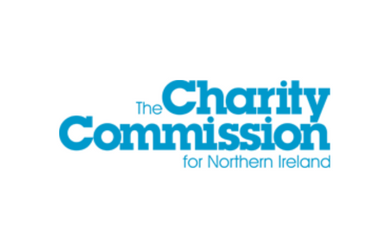A proposed registration threshold for charities in Northern Ireland should take into account organisations’ assets as well as their income, a key sector body has argued.
In a response to a consultation by the Department for Communities (DfC), the Northern Ireland Council for Voluntary Action (NICVA) welcomed the plans, which would exempt smaller organisations from having to register with the regulator in the devolved nation.
The DfC has acknowledged this places an administrative burden on organisations that rely on volunteers, and can disproportionately drain their resources.
But, NICVA’s governance and charity advice manager Denise Copeland argued in response that the registration threshold should also take into account charitable assets, to ensure these can be protected by the Charity Commission for Northern Ireland.
Copeland suggested an asset threshold of £100,000, in order to “capture buildings that wouldn’t necessarily be very high in monetary value, but that could potentially have significant value in terms of being an important community space”.
She added: “We recognise that in the setting of an asset threshold, detailed guidance will need to be produced as there are various examples of types of ownership of assets within the sector, from corporate trustees and holding trustees to mortgages.”
The registration threshold, for which NICVA has long advocated, was provided for by then-minister for communities Deirdre Hargey as part of the Charities Act (Northern Ireland) 2022. The current consultation, which covers the scope of the future threshold as well as other proposed reporting easements for small charities, runs until 11 August.
Copeland added that NICVA “warmly welcomes” the threshold’s introduction, with scope for organisations to deregister if they drop below the threshold, or remain on the register if they wish to retain charity status.
“Without a charity registration threshold, there is a real danger that existing small organisations are going to wind up rather than having to register and/or report annually to the Commission,” she said. “Trustees of some smaller organisations have told us, and other helper groups, that they find the regulations overwhelming.”
Call to ease smaller Scottish charities’ audit burden
Separately, an accountancy body has pushed for an increase to the threshold at which charities in Scotland must complete an audit, after finding that the process can put twice the financial burden on smaller organisations compared with larger peers.
Reviewing audit thresholds was a key element of the Scottish Government’s recent review of charity regulation, which closed in late July. It followed calls from the Institute of Chartered Accountants of Scotland for politicians to remove mandatory audit requirements from smaller charities “as a matter of urgency”.
These have now been echoed in a response to the government review by the Association of Chartered Certified Accountants (ACCA). It said there was merit in bringing audit income thresholds, currently £500,000 in Scotland and Northern Ireland, into closer alignment with England and Wales, where they stand at £1m.
Analysis by ACCA of a sample of around 50 charities showed that for those with a turnover under £1m that were subject to audit, the cost of the fee as a percentage of their annual income was on average 0.8%. This compared with 0.4% for charities with an income over £1m.
Susan Love, ACCA’s strategic engagement lead for Scotland, said that while the public “rightly expects high standards of governance and transparency, we have an opportunity to relieve some cost pressure from charities currently subject to the rigour of the audit process”.
Love added: “Better and more up-to-date regulations will not only ease the burden on small grassroots charities, but it will ensure their hard-earned fundraising will continue to go to the causes that need it most, freeing up time and money for charities to do their work.”
Related Articles











